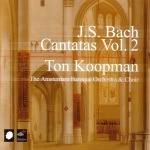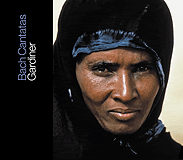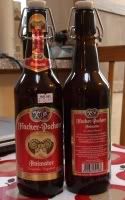Today marks the beginning of Holy Week, when Christ's entry into Jerusalem was in England traditionally marked with expansive liturgy, processions to church and the blessing of 'palms', that is foliage symbolising the biblical palms, by the priest. Like many English religious customs it was changed decisively by the Reformation. Like other customs it takes the same pattern: tolerated under Henry VIII's first moves towards Protestantism; banned under Edward IV's government let by Lord Somerset; restored under Queen Mary; and then finally forbidden by Queen Elizabeth (in 1559). In a similarly typical pattern, many of the customs were transformed from public parish ceremony to private practices: as Ronald Hutton points out, the collection of willow and hazel foliage - showing the season's catkins - was common throughout the eighteenth century. And even without a blessing from the priest, 'palm crosses' which were made on the Sunday continued to be treasured as lucky charms well into the nineteenth century.

It's also a day during Lent for which we have a surviving cantata by JS Bach: the early Weimar piece (1714) BWV 182 - Himmelskönig, sei Willkommen. Opening with a graceful Italianate sonata with its dancing theme picked out by a flute, it's a joyful, dancing cantata which looks forward to the Easter narrative, considering the events to come, and its form matches the events of Holy Week - from joy to despair to salvation. The heart of the cantata takes the form of three arias, unseparated by recitatives, the bass meditating upon the strength of love and the alto submitting itself to the sacred narrative of Easter. The tenor's prickly aria attempts to achieve a true discipleship but, again anticipating the Passion, fears failure - despite the encouragement of the accompaniment carrying him through to the end. Once this difficult journey has been taken, encouraged at the end by the community of the faithful in the form of a chorale, Bach instructs his players and singers once more to the dance through the celebratory final chorus.

Ton Koopman's recording (above), available on his second volume of Bach cantatas, is the version I'd particularly recommend. John Eliot Gardiner's live performance from 2000 is also a strong recommendation, on volume 21 of his complete cycle. Koopman's stylishness is refreshing; Gardiner's energy bracing.

As it's a Sunday during Lent, we've tried to find a suitably seasonal beer. And after failing last weekend and having to drink some (admittedly delicious) Winter bocks, a visit to Bacchanalia today unearthed a couple of bottles of Hacker-Pschorr's Animator Doppelbock. It's a dark, strong (8.1%) Munich brew that somehow manages to pack in a steely, dry backbone to balance out the toffee-ish malt flavours and the warming alcohol. Lovely stuff.
 It's also a day during Lent for which we have a surviving cantata by JS Bach: the early Weimar piece (1714) BWV 182 - Himmelskönig, sei Willkommen. Opening with a graceful Italianate sonata with its dancing theme picked out by a flute, it's a joyful, dancing cantata which looks forward to the Easter narrative, considering the events to come, and its form matches the events of Holy Week - from joy to despair to salvation. The heart of the cantata takes the form of three arias, unseparated by recitatives, the bass meditating upon the strength of love and the alto submitting itself to the sacred narrative of Easter. The tenor's prickly aria attempts to achieve a true discipleship but, again anticipating the Passion, fears failure - despite the encouragement of the accompaniment carrying him through to the end. Once this difficult journey has been taken, encouraged at the end by the community of the faithful in the form of a chorale, Bach instructs his players and singers once more to the dance through the celebratory final chorus.
It's also a day during Lent for which we have a surviving cantata by JS Bach: the early Weimar piece (1714) BWV 182 - Himmelskönig, sei Willkommen. Opening with a graceful Italianate sonata with its dancing theme picked out by a flute, it's a joyful, dancing cantata which looks forward to the Easter narrative, considering the events to come, and its form matches the events of Holy Week - from joy to despair to salvation. The heart of the cantata takes the form of three arias, unseparated by recitatives, the bass meditating upon the strength of love and the alto submitting itself to the sacred narrative of Easter. The tenor's prickly aria attempts to achieve a true discipleship but, again anticipating the Passion, fears failure - despite the encouragement of the accompaniment carrying him through to the end. Once this difficult journey has been taken, encouraged at the end by the community of the faithful in the form of a chorale, Bach instructs his players and singers once more to the dance through the celebratory final chorus. Ton Koopman's recording (above), available on his second volume of Bach cantatas, is the version I'd particularly recommend. John Eliot Gardiner's live performance from 2000 is also a strong recommendation, on volume 21 of his complete cycle. Koopman's stylishness is refreshing; Gardiner's energy bracing.
Ton Koopman's recording (above), available on his second volume of Bach cantatas, is the version I'd particularly recommend. John Eliot Gardiner's live performance from 2000 is also a strong recommendation, on volume 21 of his complete cycle. Koopman's stylishness is refreshing; Gardiner's energy bracing. As it's a Sunday during Lent, we've tried to find a suitably seasonal beer. And after failing last weekend and having to drink some (admittedly delicious) Winter bocks, a visit to Bacchanalia today unearthed a couple of bottles of Hacker-Pschorr's Animator Doppelbock. It's a dark, strong (8.1%) Munich brew that somehow manages to pack in a steely, dry backbone to balance out the toffee-ish malt flavours and the warming alcohol. Lovely stuff.
As it's a Sunday during Lent, we've tried to find a suitably seasonal beer. And after failing last weekend and having to drink some (admittedly delicious) Winter bocks, a visit to Bacchanalia today unearthed a couple of bottles of Hacker-Pschorr's Animator Doppelbock. It's a dark, strong (8.1%) Munich brew that somehow manages to pack in a steely, dry backbone to balance out the toffee-ish malt flavours and the warming alcohol. Lovely stuff.
No comments:
Post a Comment